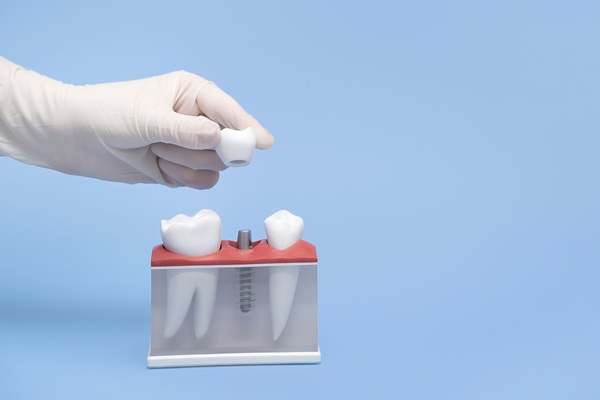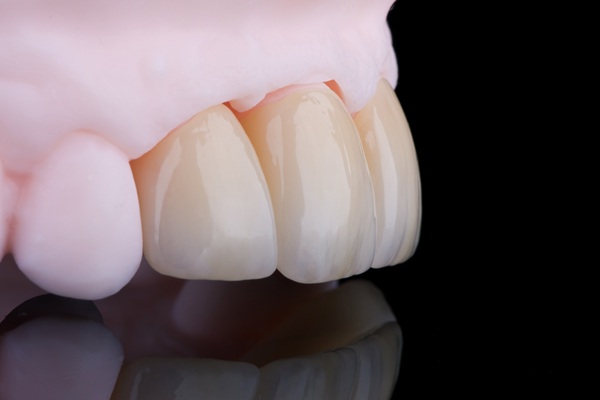Oral Surgery from a General Dentist for Dental Implant Placement

Minor oral surgery is required for the placement of dental implants. An implant is an artificial tooth root placed in the jaw to replace lost roots that fall out when a tooth is lost. The importance of this cannot be overstated as it helps to preserve bone tissue loss in the jaw.
Bone tissue loss is one of the most significant issues people with missing teeth deal with. It alters their facial structures and creates a sunken look. It also leads to wrinkles forming around the mouth. All that can be avoided by replacing lost teeth roots with implants and attaching restorations like crowns, bridges, or dentures to the implants.
How a general dentist places dental implants with oral surgery
Some general dentists get the additional training needed to perform minor oral surgery like the installation of implants. Getting missing teeth replaced with implants often starts with the dentist evaluating the patient to determine if they are healthy enough for minor surgery. Health conditions like diabetes or immune system disorders hinder the body’s ability to recover. Some medications can also slow down the healing process.
The dentist will talk to the patient about their medical and dental history and go over any medications they are taking. The dentist will also talk to the patient about habits like drinking and smoking. These habits also slow down the healing process, increasing the risk of complications.
Patients also need to have adequate bone tissues in the jawbone to hold implants. Those who lack the jaw thickness needed to hold implants in place might have to get bone grafts. Bone grafting can be safely used to widen a person’s jaw, but they need to be fully healed before starting with implants. It takes about three months to recover from the procedure.
The surgical placement of the implant
The surgical placement of dental implants starts with the dentist administering a shot of a local anesthetic. This prevents the patient from feeling pain as the dentist incisions into their gums to access their jaw.
A small hole is drilled into the jaw, and the implant is shoved into it. Surrounding bone tissues hold the implant in place via friction. The implant bonds with these bone tissues over about six months until it becomes part of the patient’s jaw. The procedure is called osseointegration.
Once the implant has fused with bone tissues in the jaw, a restoration can be placed on it to complete the treatment. The implant helps preserve bone tissue in the jaw by transferring bite forces into it, giving the tissues there the stimulation they need to remain healthy. Implants are the next best thing to natural teeth. They can last the rest of the patient’s life, and they do not require any special care.
Explore dental implants
Need to replace a missing tooth? Call or visit our Ann Arbor clinic to learn more about implants and other teeth replacement options.
Request an appointment here: https://www.annarborpersonaltouchdentistry.com or call Shiva G. Rad, D.D.S. at (734) 436-0817 for an appointment in our Ann Arbor office.
Check out what others are saying about our dental services on Yelp: Oral Surgery in Ann Arbor, MI.
Recent Posts
Implant dentistry procedures have the highest rate of success among all the options available for replacing missing teeth. The process of replacing a single missing tooth is straightforward and involves using an implant as artificial tooth roots and supporting it with a dental crown. Continue reading to learn how the process works.Regardless of the number…
Getting tooth implants is not the final phase of an implant restoration procedure. The stage is simple, but the recovery period can be uncomfortable. This part of the implant process is the time for the mouth heals and fuses to the implant post. The following guide covers what to expect during recovery and the steps…
Root canal therapy is often the final step in saving a severely damaged or infected tooth. However, in most cases, a general dentist will recommend placing a dental crown after root canal therapy to contribute to your long-term oral health. This restoration strengthens and protects the treated tooth, helping the tooth to maintain its function,…
Jaw pain, headaches, and difficulty chewing can severely impact daily life. Fortunately, a TMJ dentist offers specialized care to diagnose and treat disorders of the temporomandibular joint (TMJ), providing relief and restoring comfort. These dental professionals specialize in identifying the underlying causes of TMJ disorders and developing treatment plans tailored to your specific needs.The temporomandibular…


